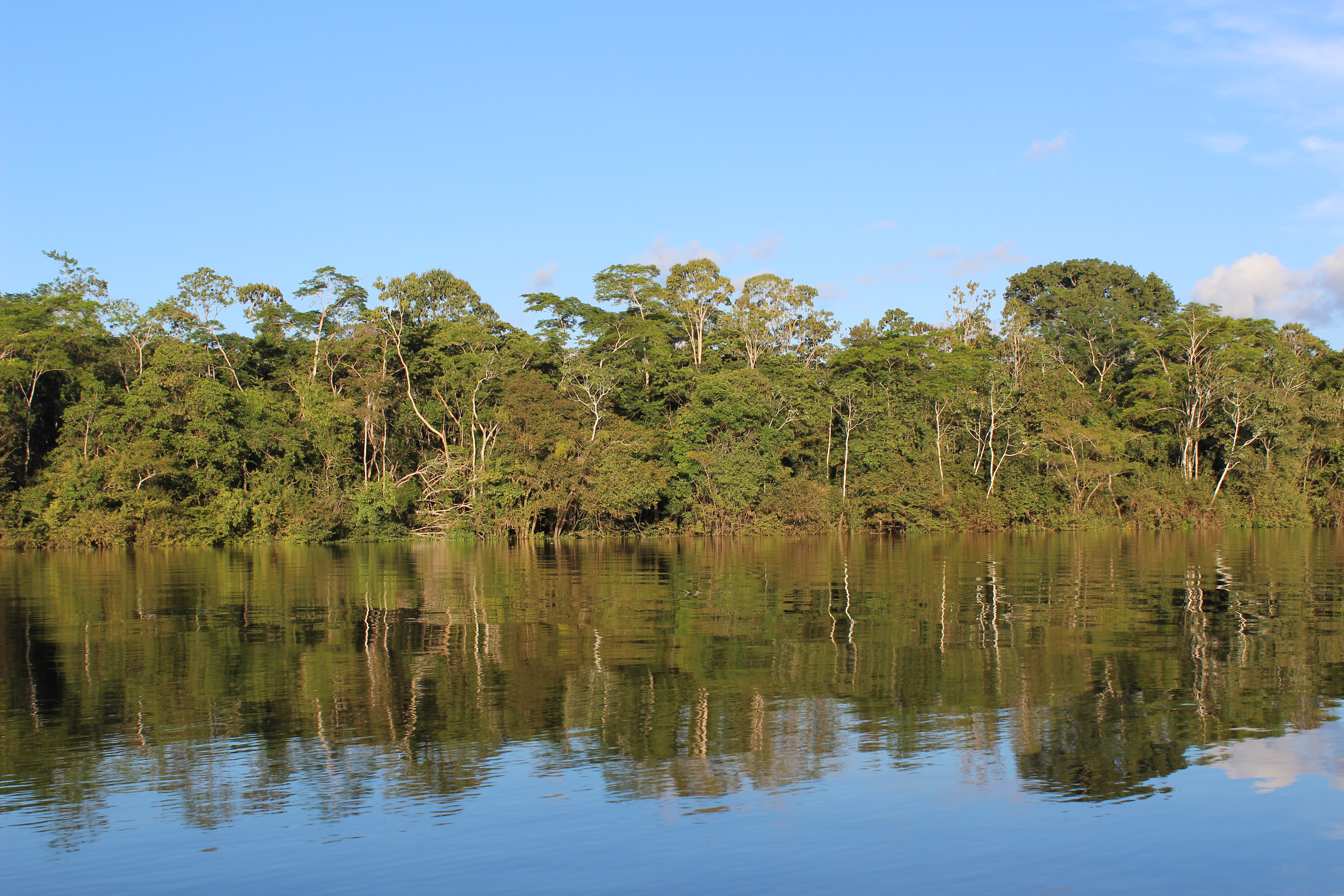Journalists working in the Amazon now have a new fund at their disposal to help realize coverage of the region thanks in part to the initiative of reporters working in the area.
The Norwegian government and The Pulitzer Center on Crisis Reporting recently launched the Rainforest Journalism Fund (journalism fund on tropical forests) to allocate U.S. $5.5 million over five years for coverage raising awareness about global problems in tropical forests and climate change.
 Antonio Campoy (CC BY 2.0)
Antonio Campoy (CC BY 2.0)Pulitzer Center founder and executive director Jon Sawyer told the Knight Center that the Norwegian Climate and Forest Initiative (NICFI) contacted his organization in October 2017 to propose the idea of managing the fund. The NICFI is a body under the Norwegian Ministry of Climate and Environment.
“We said that we would very much like to participate, so long as the Fund was structured in such a way as to ensure the editorial independence of the reporting,” Sawyer said.
According to Sawyer, the initiative came from a group of journalists who cover Amazonian environmental issues in South American countries. Jonathan Watts, editor of global environmental issues of the British newspaper The Guardian, among other journalists in South America, was one of the main promoters of the idea, according to Sawyer.
“We were introduced by NICFI to Jonathan Watts as one of several journalists who had encouraged the creation of a journalism fund specific to the Amazon,” the director of the Pulitzer Center said. “He and other members of what is now our Amazon Advisory Committee had been in discussions informally about the creation of such a fund; their insights and suggestions were an important contributor to our own discussions with NICFI.”.
Watts revealed to the Knight Center that the idea for the fund came essentially from a conversation he had in Brazil with friends journalists who shared the same concerns about journalistic coverage in the Amazon.
“It was something I had been thinking about abstractly for a couple of years because I wanted to do more stories and spend more time in the Amazon, but felt sometimes constrained by the high costs of trips there,” Watts said. “I wasn’t sure if this was just me, but when I talked to Simon, Thomas, Fabiano, Dani and Eliane last year they all seemed to think it was useful to have a fund. So we discussed how it might work and then I suggested we approach the Norwegian government.”
Reporting in the region is difficult and expensive, “but crucially important if humanity is to understand and respond to the existential threats of deforestation, biodiversity loss and climate change,” Watts said about the impact that the fund could have, in a press release from the Pulitzer Center.
The multi-million dollar fund aims to organize workshops and annual regional conferences, in addition to financing about 200 reports from local and regional media in the course of the five years that it will be in operation. In order to cover the main regions of the world’s vulnerable tropical rainforests, the fund will have three journalistic advisory committees, which will select the journalistic reports to be financed in each region.
Watts will chair the advisory committee concerning the Amazon. The members of the African and Asian committees will be elected in the coming months.
According to Watts, the role of the advisory committee will be selecting the journalistic projects and to advise the participating journalists in annual training workshops, so that there is a “strong regional voice in decision-making.”
In addition to Watts, the other members of the committee on the Amazon are Simón Romero, national correspondent for The New York Times; Thomas Fischermann, correspondent in Rio de Janeiro for German newspaper Die Zeit; Adriana León, correspondent in Peru for the Los Angeles Times and director of press freedom for the Press and Society Institute (IPYS); Eliane Brum, Brazilian journalist and filmmaker, columnist for El País of Spain; Daniela Chiaretti, Brazilian environmental correspondent and journalist of the site Valor Económico in Sao Paulo; and Fabiano Maisonnave, correspondent in the Amazon for Folha de S. Paulo.
According to Romero, the idea of this committee is to strengthen the coverage of journalists working in the Amazon region. “Our discussions about the fund's operations are taking place in a mixture of languages including Portuguese, Spanish and English,” Romero said.
“I made dozens of reporting trips to the Amazon during my time as a correspondent based in Brazil and Venezuela, and each time I was blown away by what I witnessed," he said.
Throughout the five years the project will last, the fund also plans to train 75 journalists on how to report in tropical forests and in first aid.
The Pulitzer Center, which will administer the project, is a non-profit organization founded in 2008 with the purpose of supporting journalists interested in covering issues and conflicts over the environment. Currently, according to Sawyer, his organization finances about 150 international reports every year, many of them on climate change and other issues related to tropical forests.
Sawyer announced that they will publish the call for reporting-grant proposals in the “journalism grants” tab on the Pulitzer site in the next few days.